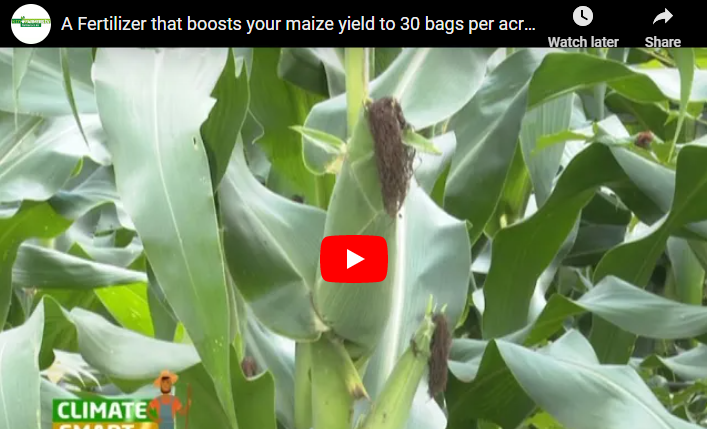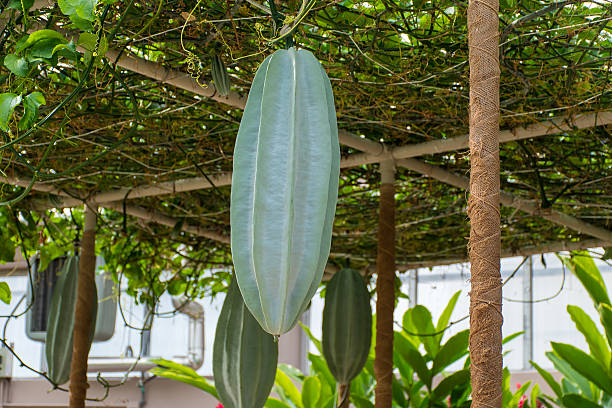Maize, also known as corn, is a versatile crop that requires proper nourishment to achieve optimal growth and yield. One of the key factors in promoting maize productivity is the use of suitable fertilizers. In this article, we will explore the 15 best fertilizers for maize, categorizing them into organic and inorganic options to help you make informed choices for your maize cultivation.
Maize cultivation relies heavily on the availability of essential nutrients in the soil. Fertilizers play a crucial role in replenishing these nutrients and ensuring the healthy development of maize plants. Let’s delve into the world of fertilizers and discover the top options for enhancing your maize harvest.
Before we explore the best fertilizers for maize, it’s essential to understand the different types available and their impact on plant growth. Fertilizers provide essential nutrients like nitrogen (N), phosphorus (P), and potassium (K), along with other micronutrients, to the soil. These nutrients are vital for the proper functioning of various physiological processes in maize plants.
Best Organic Fertilizers for Maize
Organic fertilizers offer a natural and sustainable approach to maize cultivation. They are derived from animal manure, compost, plant residues, and other organic sources. Organic fertilizers enrich the soil with organic matter and slow-release nutrients, fostering long-term soil health and sustainability. Some popular organic fertilizers suitable for maize include:
Read Also: Top 10 Best Herbicides for Lawns
1. Compost:
Compost is a rich source of organic matter and essential nutrients. It improves soil structure, water-holding capacity, and nutrient availability for maize plants.
Read Also: 15 Best Fertilizers for Carrot Organic & Inorganic: Boost Your Carrot Growth!
2. Manure:
Animal manure, such as cow or poultry manure, is an excellent source of nitrogen, phosphorus, and potassium. It enhances soil fertility and promotes healthy root development.
3. Bone Meal:
Bone meal is a natural fertilizer high in phosphorus, essential for robust root growth and flowering in maize.
Read Also: Top 15 Best Herbicides for St Augustine Grass
4. Fish Emulsion:
Fish emulsion provides nitrogen, phosphorus, and trace minerals. It is a liquid organic fertilizer suitable for foliar application or soil drenching.
5. Seaweed Extract:
Seaweed extract is rich in plant growth-promoting compounds, trace minerals, and natural hormones. It stimulates root development, enhances nutrient uptake, and improves overall maize health.
Read Also: 15 Best Fertilizer for Cabbage Organic & Inorganic
6. Blood Meal:
Blood meal is a high-nitrogen organic fertilizer derived from dried animal blood. It is valuable for promoting leafy growth and increasing maize yield.
7. Worm Castings:
Worm castings are nutrient-rich organic matter produced by earthworms. They improve soil structure, enhance nutrient availability, and promote beneficial microbial activity.
Read Also: 15 Best Fertilizer for Cocoa Farm [Organic & Inorganic]
8. Green Manure Cover Crops:
Green manure cover crops like legumes (clover, vetch) or grasses (rye, millet) can be grown and plowed into the soil to increase organic matter content and nitrogen levels.
Read Also: Top Best Herbicides For Sugarcane
Best Inorganic Fertilizers for Maize
Inorganic fertilizers, also known as synthetic or chemical fertilizers, are manufactured through industrial processes. They contain concentrated forms of essential nutrients and are readily available to plants. Here are some of the best inorganic fertilizers for maize:
1. NPK Fertilizers:
NPK fertilizers are a blend of nitrogen (N), phosphorus (P), and potassium (K). They come in various formulations, such as 10-10-10 or 20-10-10, providing a balanced nutrient ratio for maize.
Read Also: 15 Best Fertilizers for Onions Farm [Organic & Inorganic]
2. Slow-Release Fertilizers:
Slow-release fertilizers release nutrients gradually over an extended period. They ensure a steady supply of nutrients to maize plants, reducing the risk of over-f absorption and preventing nutrient leaching. Slow-release fertilizers like coated granules or controlled-release fertilizers are suitable for maize cultivation.
3. Liquid Fertilizers:
Liquid fertilizers are concentrated solutions that can be easily applied to the soil or foliage. They provide quick nutrient uptake for maize plants. Liquid fertilizers often contain a balanced ratio of NPK along with micronutrients.
Read Also: 15 Best Fertilizer for Sweet Potatoes Farm [Organic & Inorganic]
4. Granular Fertilizers:
Granular fertilizers are solid, dry formulations that are spread on the soil surface. They slowly release nutrients as they break down, ensuring a continuous supply to maize plants. Granular fertilizers are available in different formulations tailored for specific nutrient requirements.
5. Micronutrient Fertilizers:
Micronutrients, such as iron, zinc, manganese, and copper, are essential for maize growth and development. Micronutrient fertilizers address specific nutrient deficiencies and help optimize maize productivity.
6. Urea:
Urea is a widely used nitrogen fertilizer that provides a quick source of nitrogen for maize plants. It is cost-effective and easily available.
7. Diammonium Phosphate (DAP):
DAP is a common phosphorus and nitrogen fertilizer. It promotes root development, flowering, and seed production in maize.
8. Potassium Chloride (Muriate of Potash):
Potassium chloride is a primary source of potassium. It enhances maize’s disease resistance, drought tolerance, and overall yield.
9. Monoammonium Phosphate (MAP):
MAP is a phosphorus and nitrogen fertilizer suitable for early maize growth stages. It stimulates root development and improves nutrient uptake.
10. Calcium Nitrate:
Calcium nitrate is a nitrogen and calcium fertilizer that helps prevent calcium deficiencies in maize. It supports cell wall development and improves overall plant strength.
11. Ammonium Nitrate:
Ammonium nitrate is a high-nitrogen fertilizer that provides a quick release of nitrogen for rapid maize growth. It is effective for boosting vegetative growth and green foliage.
Read Also: Top 10 Best Herbicides for Clover
Fertilizer Application Methods for Maize
Applying fertilizers correctly is crucial for maximizing their effectiveness. Here are some common fertilizer application methods for maize:
1. Broadcasting:
Broadcasting involves evenly spreading the fertilizer over the entire maize field. It is suitable for granular and powdered fertilizers.
2. Band Placement:
Band placement involves placing the fertilizer in a concentrated band near the maize plant’s root zone. It ensures efficient nutrient uptake and minimizes fertilizer wastage.
3. Side Dressing:
Side dressing involves applying fertilizer in a shallow trench alongside the maize rows during the growing season. It provides a targeted nutrient supply to the plants when they need it the most.
4. Foliar Application:
Foliar application involves spraying a liquid fertilizer directly on the maize leaves. It allows for rapid nutrient absorption and is useful for correcting nutrient deficiencies or providing an additional nutrient boost.
Read Also: The Top 10 Best Herbicides for Poison Ivy
Factors to Consider When Choosing Fertilizers for Maize
When selecting fertilizers for maize cultivation, consider the following factors:
Soil Analysis:
Conduct a soil test to determine the nutrient deficiencies and pH level of your soil. This information will guide you in choosing the right fertilizer composition.
Nutrient Requirements:
Understand the specific nutrient requirements of maize at different growth stages. Adjust your fertilizer choices accordingly to provide the necessary nutrients.
Crop Rotation and Sustainability:
Incorporate crop rotation and sustainable farming practices to maintain soil health and minimize nutrient depletion.
Cost-effectiveness:
Consider the cost of fertilizers and their long-term benefits in terms of increased maize yield and quality.
Read Also: Top 10 Best Herbicides For Weed Control
Tips for Using Fertilizers on Maize
To ensure successful fertilizer application and maximize maize productivity, follow these tips:
Follow Application Instructions: Read and follow the instructions provided on the fertilizer packaging regarding application rates, timing, and mixing guidelines.
Avoid Overapplication: Overapplication of fertilizers can lead to nutrient imbalances, environmental pollution, and economic losses. Apply fertilizers in recommended amounts based on soil test results.
Time Application Properly: Apply fertilizers at the right growth stages of maize to meet the plant’s nutrient demands effectively.
Proper Watering: Adequate irrigation is essential for proper nutrient uptake. Ensure that the soil is adequately moist when applying fertilizers.
Monitor Plant Response: Regularly monitor maize plants for any signs of nutrient deficiencies or excesses. Adjust fertilizer applications accordingly.
Read Also: Top 10 Best Herbicides for Wild Violets
FAQs
How often should I fertilize my maize crops?
Fertilization frequency depends on factors such as soil fertility, nutrient requirements, and fertilizer type. Generally, maize can be fertilized at planting and supplemented during the growing season if needed.
Read Also: Top 10 Best Herbicides for Spurge
Can I mix organic and inorganic fertilizers for maize?
Yes, combining organic and inorganic fertilizers can provide a balanced nutrient supply. However, ensure compatibility between the different fertilizers and follow recommended application rates.
Are slow-release fertilizers better for maize?
Slow-release fertilizers offer a gradual nutrient release, providing a steady supply to maize plants. They can be beneficial, especially in soils with low nutrient-holding capacity.
Read Also: Top 10 Best Herbicides for Creeping Charlie
How can I prevent fertilizer runoff and environmental pollution?
To minimize runoff, avoid overapplication of fertilizers, incorporate them into the soil, and follow recommended application practices. Additionally, planting cover crops and practicing proper soil management can help reduce pollution risks.
Can I use leftover fertilizers from the previous season?
It is generally not recommended to use leftover fertilizers from the previous season as nutrient content and efficacy may decrease over time. It’s best to purchase fresh fertilizers for optimal results.
Read Also: Top 10 Best Herbicides for Dandelions
Conclusion
Choosing the right fertilizers is crucial for achieving optimal maize growth and maximizing yields. Organic and inorganic fertilizers offer different advantages, and selecting the appropriate ones depends on your farming practices and specific requirements. Consider the nutrient needs of maize, application methods, and sustainability factors to make informed decisions. By nourishing your maize crops with the best fertilizers, you can look forward to a bountiful harvest.



